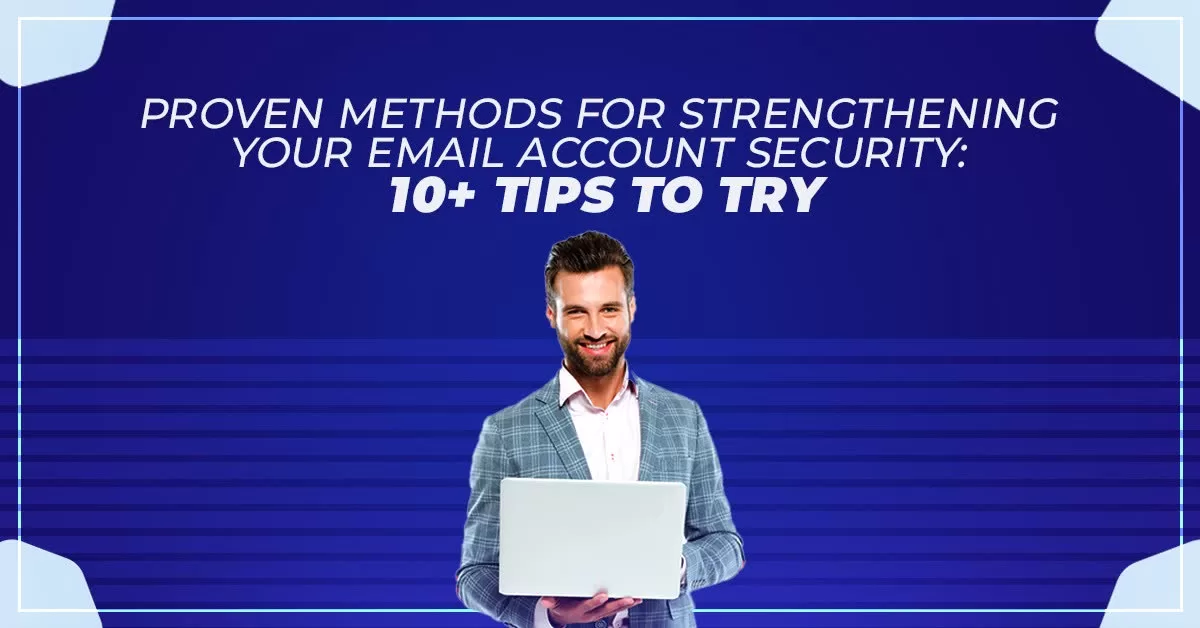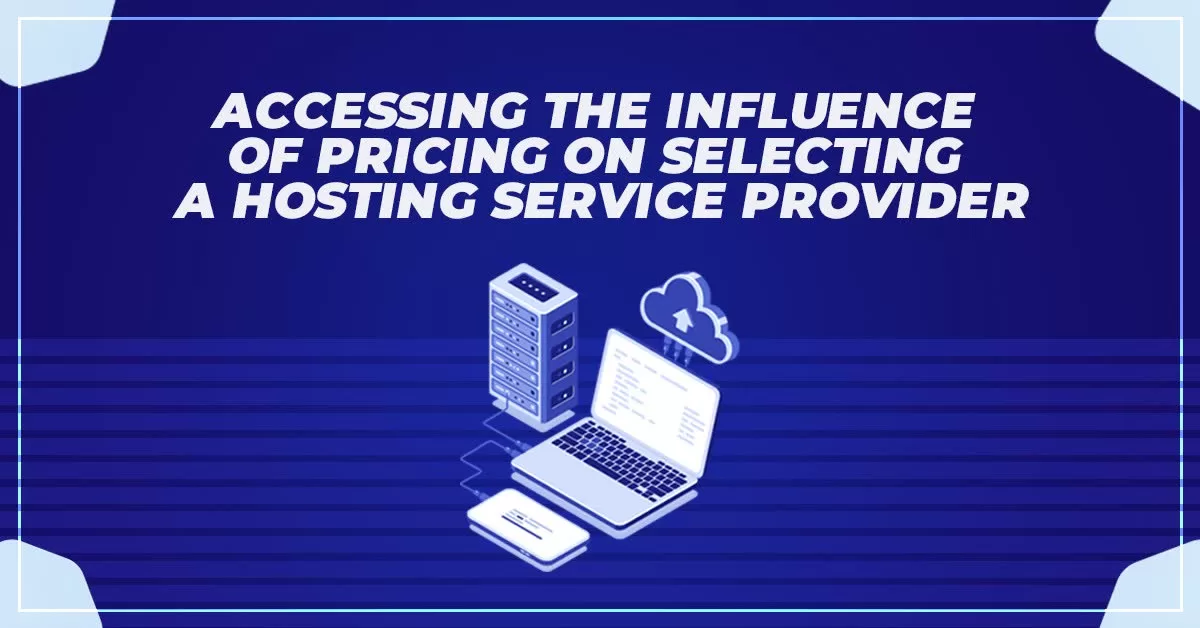Proven Methods For Strengthening Your Email Account Security 10 Tips to Try
Emails are an integral part of our daily lives, and it is no secret that cybercriminals consider email as a prime target to steal sensitive information. With the increasing number of online threats, securing your email account is more important than ever. Cybercriminals can use various tactics to gain access to their email account and use it for malicious purposes.
The purpose of this article is to provide readers with proven methods for strengthening their email account security. By following these tips, you can significantly reduce the risk of a cyber-attack and keep your email account secure. This article will also explain why email security is crucial, the consequences of a breach, and how it can affect your personal and professional life. Whether you are a beginner or an experienced user, these tips will help you strengthen your email security and protect your sensitive data.
Best Tips To Secure Your Email Account
1. Choose A Strong Password
A strong password is an essential part of email account security. A password is a barrier that prevents unauthorized access to your account, and a weak password can easily be guessed by hackers, which can compromise the security of your email account.
To create a strong password, consider the following tips. Such as using a combination of uppercase and lowercase letters, numbers, and special characters. Also, avoid using common words or phrases, as they are easy to guess. Instead, use random characters that have no meaning or connection to your personal life.
2. Enable Two-Factor Authentication
Enabling two-factor authentication (2FA) is an important step in enhancing the security of your email account. Two-factor authentication is a security process that requires two forms of identification to access an account. This is usually accomplished by entering a password and a unique code that is sent to a trusted device or app. The main benefit of two-factor authentication is that it adds a layer of security to your account, making it much more difficult for hackers to gain access.
Many popular email providers, such as Gmail and Outlook, offer two-factor authentication as an option. In addition to adding an extra layer of security to your email account, enabling two-factor authentication can also provide peace of mind. With this feature enabled, you can be confident that your email account is protected even if your password is compromised. This is particularly important for businesses and individuals who deal with sensitive information, such as financial data or personal information.
3. Beware of Phishing Scams
Phishing scams are a type of online fraud where scammers create fake emails or websites to steal personal information from unsuspecting victims. These emails often appear to be from legitimate sources such as banks, government agencies, or other trusted organizations.
Phishing scammers use a variety of tactics to trick their victims, including creating emails that look like they are from real companies, using urgent language to create a sense of panic or urgency, and using scare tactics such as threatening to close a bank account.
4. Keep Your Email Account Information Private
Keeping your email account information private is crucial to protecting your online security. To protect your email account information, there are several tips to keep in mind such as never sharing your email password with anyone, including family and friends. Also, be cautious about giving out your email address and other personal information online, especially on social media platforms.
Another way to keep your email account information private is to use a strong password and enable two-factor authentication. A strong password includes a combination of upper and lowercase letters, numbers, and special characters.
5. Keep Your Software and Antivirus Programs Up to Date
Using secure connections is crucial when accessing email accounts to protect your personal and sensitive information from being intercepted by hackers. Secure connections encrypt data transmitted between your computer and the email server, making it difficult for cybercriminals to steal your login credentials or read your emails.
Unsecured connections, on the other hand, are susceptible to man-in-the-middle attacks, where a hacker intercepts your data and can steal your sensitive information. To ensure that you are using a secure connection when accessing your email account, you should always use a secure connection protocol such as HTTPS or SSL/TLS.
6. Use Secure Connections
Using secure connections is crucial when accessing email accounts to protect your personal and sensitive information from being intercepted by hackers. Secure connections encrypt data transmitted between your computer and the email server, making it difficult for cybercriminals to steal your login credentials or read your emails. Unsecured connections, on the other hand, are susceptible to man-in-the-middle attacks, where a hacker intercepts your data and can steal your sensitive information.
To ensure that you are using a secure connection when accessing your email account, you should always use a secure connection protocol such as HTTPS or SSL/TLS. If you are using a dedicated server hosting service in UK, it is also essential to ensure that your server is using secure connections.
7. Use Email Encryption
Email encryption is a technique used to protect the confidentiality of email messages and prevent unauthorized access to their content. It involves converting the message into a code that only the intended recipient can decipher, ensuring that the message remains secure during transmission and storage. The use of email encryption has become increasingly important as email has become the primary means of communication for individuals and businesses.
One of the primary benefits of email encryption is that it ensures the privacy and confidentiality of sensitive information, such as financial or personal data. Additionally, email encryption helps to prevent interception and tampering of messages during transmission, protecting against hackers or other malicious actors attempting to steal or alter the message’s content.
8. Use Disposable Email Addresses
Disposable email addresses, also known as temporary or throwaway email addresses, are email addresses that are used for a short period of time and then discarded. These email addresses are typically used when a user needs to provide an email address but does not want to use their personal email address, which can be vulnerable to spam or hacking. Disposable email addresses can be created using various online services and typically last for a few hours to a few days.
9. Regularly Back Up Your Email Data
Regularly backing up your email data is essential to protect yourself from data loss and hacking attacks. Email data is important for both personal and professional reasons, containing critical information such as contact details, financial transactions, and confidential conversations. Losing this data due to hardware failure, malware attacks, or accidental deletion can cause a significant loss of time, money, and effort. Regular backups of your email data can help you restore your emails and contacts quickly and efficiently.
Keeping your backup files secure is equally crucial, and you can do this by encrypting your backup files and storing them in a safe location, such as a dedicated server hosting in UK or a dedicated web server hosting in UK.
Conclusion
Securing your email account is crucial in protecting your personal and sensitive information from cybercriminals. By following the proven methods for strengthening email account security, including creating strong and unique passwords, enabling two-factor authentication, using email encryption, and regularly backing up your email data, you can significantly reduce the risk of a security breach. It is also essential to be vigilant when it comes to suspicious emails, links, and attachments, and to avoid using public Wi-Fi when accessing your email account.
Remember to keep your email software and anti-virus software up to date, and avoid clicking on links or downloading attachments from unknown senders. By implementing these practices, you can help to ensure the safety and security of your email account and your valuable data. If you have any concerns about the security of your email account, consider seeking advice from a dedicated server hosting in UK or a dedicated web server hosting UK provider.




































